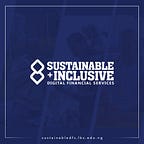Is Interoperability the Magic Bullet for Mobile Money Potential in Nigeria?
In the midst of a weak mobile money market, connecting operators could help boost adoption
According to GSMA, five years into the mobile money licensing regime, mobile money operators should be in the high growth stage; with 15 per cent of the GSM subscriber-base being active mobile money users. Using the total number of active lines in Nigeria reported by Nigerian Communication Commission (NCC)in July 2016, the active mobile money subscriber base should be in the range of 22.9 million.
Unfortunately, this is not the case.
With over 20 mobile money operators, the total number of mobile money subscribers in the country as at the end of 2016 stood at 5.54 million and 21 Mobile Money Operators (MMO), according to the Central Bank of Nigeria (CBN).
Hence, the need to craft new strategies to drive adoption of mobile money and reach estimated growth projections and critical mass is inevitable. Interoperability is one of, if not, the leading strategy for achieving this.
Kosta Peric, Deputy Director, Financial Services for the Poor at Bill & Melinda Gates Foundation in a LinkedIn post used the analogy of the mobile phone to describe the phenomenon. He challenges the usefulness of text messaging if a user could only send SMS to other users of the same phone company or network. “Not very useful”, he argues.
According to him, “In a truly inclusive, interoperable system, digital payments would be as universal as cash. Customers would be able to make transactions quickly, seamlessly, and easily from their mobile phones — to pay school fees, give money to loved ones, receive a paycheck, build savings, and overcome poverty.”
In countries like Kenya with a dominant mobile money service, M-Pesa, interoperability is still a difficult conversation to have. There’s no incentive for the dominant player (Safaricom in this instance) to adopt an open financial network or a shared ecosystem. Rather, the dominant player will try to leverage their advantage by introducing new products and services in order to increase and solidify their market dominance even more. (So it is a show of good will that Safaricom is willing to activate interoperability this year).
But in other countries where operators have distributed market share and no dominant player exists, interoperability is the surest path to ubiquity of financial services. In Nigeria, despite the introduction of the cashless policy in 2012, and all subsequent policies and initiatives intended to replace the dominance of cash, the physical, bulky notes remain king.
And it is safe to say cash will likely remain king for a while.
Pushing for interoperability (at no extra or minimal cost to users) makes it easier for not only mobile money operators but also other financial services providers to onboard financially excluded citizens. We’ve seen this happen in countries like Tanzania, which set a precedent as the first African country to adopt full mobile money compatibility among its networks. Soon after, the country reported increased transactions among users.
Currently in Nigeria, the industry structure supporting financial inclusion is fragmented with numerous operators who are promoting proprietary branded digital financial services (DFS). Transaction exchanges between operators, although technically feasible, are rare. This gap limits adoption of DFS while increasing network complexity.
From the viewpoint of one executive we interviewed, the ability to interoperate is dependent on technical capability.
“The regulators were of the opinion that the MMOs were really blocking the service from happening because we don’t want money to go out of our own system and so this were the two general strands of argument. And my own contention, and I am glad that I put it out there, was that first of all, those arguments may be true, they may not be the truth. The truth is that before you can even make those claims, there are things that we should do in the first place before we validate whether any of these things are true. Do we even know if we can send from A to B.? We have never tested them before, so why don’t we all organize a group test: each MMO sends to every other MMO and each of everyone sends back so that we can see. Do they go? Do they not go? If they don’t go, where is it? Are we technically capable of doing that? We have never done this, so if we have not addressed this particularly benchmark questions, all these accusations and arguments or perceptions, let me use it that way because there are perceptions, are not valid until we prove that we are technically capable of doing that.”
To promote interoperability, operators are required to be connected to the National Central Switch (NCS). Also, if interoperability is to achieve its goal, it should come with as little cost as possible to the users. After all, remember, it is financially excluded people — the poor and unbanked — we’re trying to reach.
Interoperability will help in the quest to establish digital payments and acceptance especially in the last mile of the Nigerian financial services ecosystem. At the end of the day, this synergy between mobile and financial industries will be pivotal in bringing DFS to the poor and unbanked.
………………………………………………….
Sustainable and Inclusive Digital Financial Services is an initiative of the Lagos Business School, currently funded by the Bill & Melinda Gates Foundation. Follow us on Facebook, Twitter and LinkedIn for news, updates, research and in-depth analysis on the state of financial inclusion, digital finance and mobile money in Nigeria and Sub Saharan Africa.
